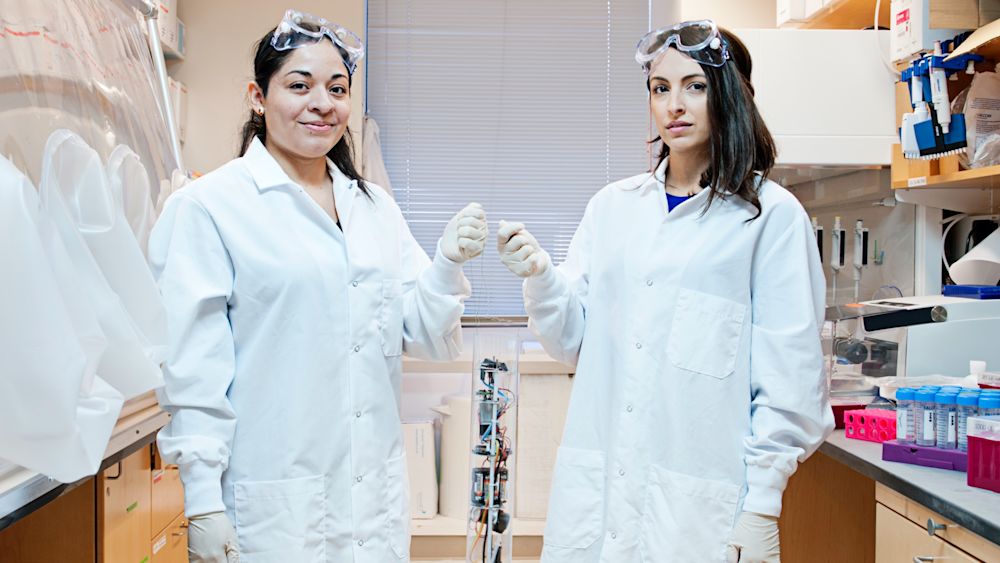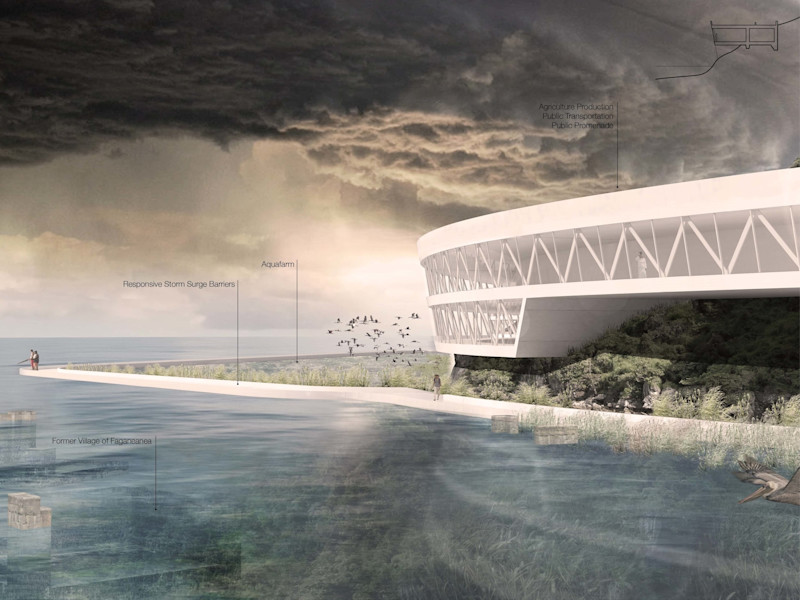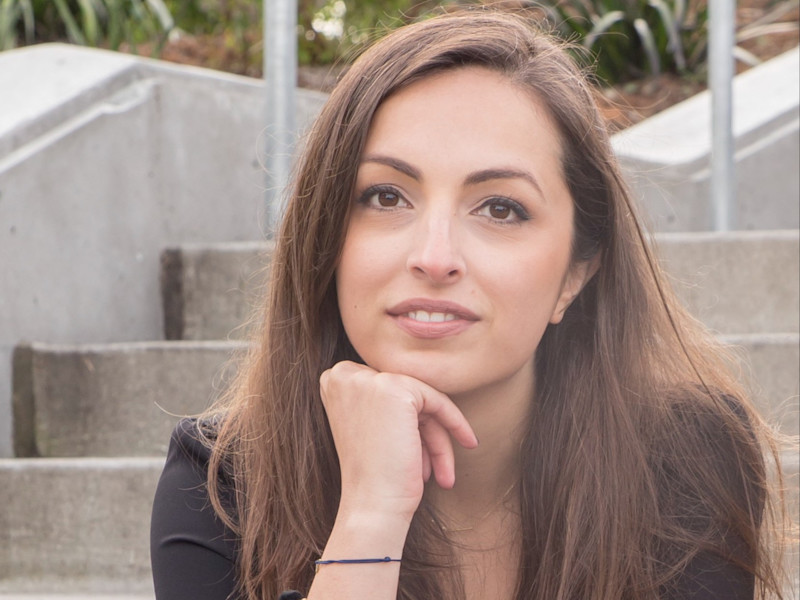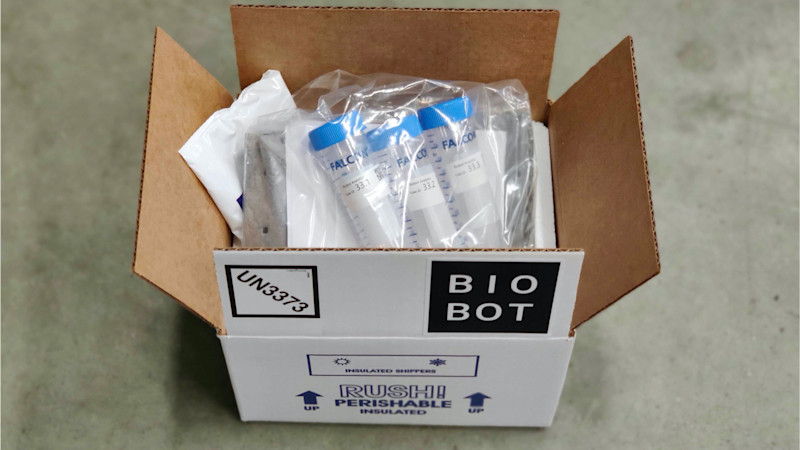- Iterate
- Meet The Team
- Here's How Biobot's Newsha Ghaeli Will Rebuild Your City
Here's How Biobot's Newsha Ghaeli Will Rebuild Your City
Through collection and analysis, helped by a $4.2M seed round in April, Biobot has been able to work with over 500 communities in North America on maps of their coronavirus concentrations, helping to shape policy and lockdown decisions. In one year, the company generated data representing 44 million people in 42 states, over 13% of the U.S. population.

In 2012, as a student at McGill University getting a Masters in Architecture, Newsha Ghaeli spent a few months in American Samoa for her thesis project. She’d been studying the impact of climate change on cities for years, but wanted to research how an island population both spiritually and economically tied to their coastal land was dealing with sea level rise and increased storm surges.
Newsha got to Samoa and saw that cyclone season was becoming increasingly dangerous for the people living in these island villages. Every year, sea levels were getting a little bit higher, the storms getting a little more severe. The seemingly obvious solution was for them to move up into the mountains, to try avoiding the coast all together and live more safely.
Over the course of her time in Samoa, though, Newsha realized that was never going to happen. The sea represented Samoan ancestors, and the land where their houses sat was sacred. Risks or not, they weren’t going to uproot and move to a place where they had no connection to the land.
Newsha is now the Co-Founder and President of Biobot Analytics, the first company in the world to commercialize data from sewage. Inspired by the potential of wastewater epidemiology, Biobot essentially analyzes sewage samples to help cities make more informed, data-driven decisions for public health. They started with the opioid crisis in 2017, giving cities data points on how many of their residents were using opioids, before pivoting to COVID-19 tracing. Through collection and analysis, and helped by a $4.2M seed round in April 2020, Biobot has been able to help over 500 communities in North America shape policy and lockdown decisions through maps of coronavirus concentrations. In one year, the company generated data representing 44 million people in 42 states, over 13% of the U.S. population.
At the core of Biobot is the same realization that Newsha made as a student in Samoa. Our cities aren’t going anywhere. Larger global forces, like climate change or, well, a pandemic, aren’t going anywhere. It’s up to technologists to bring new tools to existing infrastructure, not create new infrastructure all together.
“We're not going to rebuild London, we're not going to rebuild Tokyo, and we're not going to rebuild Calcutta,” Newsha said in an interview with The Org. “As architects and designers of technologies, we need to identify opportunities where we can make our existing built environments better. That's how we're going to survive globalization and climate change, by figuring out how we retrofit our existing environments, not building new cities from scratch.”

As a teenager in Oakville, Ontario, Newsha was very strong in math and science, not all that surprising considering her father is an engineer and her mother is a social psychology professor. She spent most of her adolescent life thinking her future was in physics, applying exclusively to math and physics programs once it came time for University.
Everything changed after Newsha sat down with her high school physics teacher to talk about applications. The teacher said, in more or less words, that despite her talent in the hard sciences, she also had a creative drive that wouldn’t be fulfilled on the physics career path. Had Newsha considered looking into architecture programs?
“It's funny because I actually didn't even know about architecture as a profession until that conversation,” Newsha said. “It had just never occurred to me that there's somebody who's making very intentional decisions about the shape of this building on this street.
“Architecture essentially marries maths and physics and engineering, and actually to a large extent psychology and sociology, all these things that I really liked and was good at. I just had never known what to do with it.”
She ended up studying architecture at the University of Waterloo, a co-op program that melded professional experience with the classroom. For five years, Newsha did one semester at Waterloo and one semester in the field. She worked for a planning firm in Montreal and a residential architecture firm in London, did two semesters at one of the largest architecture firms in the world, Arquitectonica in Paris, and completed exchanges in Switzerland and in Rome.
All the while, Newsha became obsessed with cities. Not necessarily with architecture. Large scale urban planning firms took too long to finish projects, while residential firms didn’t create enough impact. Preserving those built environments from climate change, though, these ancient cities full of the learned history of millions of people and experiences, called to her.
Newsha took that drive to McGill for her Masters, where she made another academic connection that would change her life. During her first year in the program, she honed in on the urban tech space movement, colloquially known as smart cities, and connected with a main thought leader in the space, an Italian architect named Carlo Ratti who also runs an R&D lab for smart city development at MIT called the Senseable City Lab. He not only hired Newsha as a junior architect at his personal architecture firm in between her first and second years at McGill, but also became an external advisor on her thesis and funded the trip to Samoa through the lab.
Post-trip and thesis, Newsha knew she didn’t want to get a PhD, but also wasn’t ready to give up research. Once again, Ratti had the answer. He invited her to apply to the Senseable City Lab as a Research Associate as a way to continue academic research that could eventually be developed into a business.
“She's very good at executing, but beyond executing, she's also very good at clearly communicating concepts to her team and other people,” Ratti said in an interview. “That’s a nature you need to bring a company together and lead and manage a larger structure.”

The business turned out to be Biobot. Newsha met Dr. Mariana Matus, a first-year PhD studying wastewater epidemiology, and took a more city-focused lens to the research. They worked on the project for three years at MIT before forming the company in 2017, with Mariana as the CEO and Newsha as the President.
While they were accepted to Y Combinator in 2018, growth was relatively steady up until March 2020. Biobot was working with seven cities on opioids, for context. Since then, the team has grown to nearly 20 and the company has been written up in Forbes, CNN, The New York Times, The New Yorker, and more. Now that the impact of the concept has been proven, the company plans on expanding its wastewater epidemiology platform across five continents.
“If you look at most successful startups, they need somebody who's always able to look outside of the box to re-think what they're doing and be able to jump on new opportunities,” Ratti said. “Newsha is very alert and has always been able to look around and see new opportunities. It's not just the COVID pivot, it's the ability to see two, three steps ahead to find a business model that can turn a crisis into an opportunity.”

COVID testing will hopefully not have much relevance to the world by 2022, and for Biobot, that’s OK. Welcomed, even. The applications for accurate, city-wide health data are essentially limitless, particularly when it comes to proactive public health and particularly when it comes to Newsha and Mariana.
“We see wastewater testing as a permanent infrastructure layer on our sewage systems around the world, and a permanent pillar of pandemic preparedness and disease surveillance globally,” Newsha said. “2020 really exposed how vulnerable we are as a society to a pandemic, and hopefully given all the investments that are now going to go into this, it will never happen again.”
--
The Org is a professional community where transparent companies can show off their team to the world. Join your company here to add yourself to the org chart!
In this article


The ORG helps
you hire great
candidates
Free to use – try today